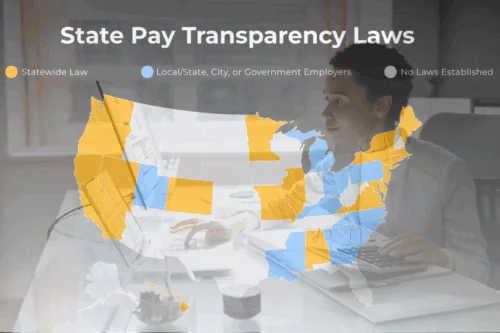Welcome to our comprehensive guide on California employment laws. Understanding these laws is vital whether you’re just entering the job market or seeking to ensure your workplace practices are up to date. California’s employment regulations are among the most progressive in the United States, designed to protect workers and promote fairness in the workplace.
This guide breaks down the key areas of CA employment laws, from minimum wage standards and overtime rules to anti-discrimination policies and safety regulations. With this knowledge, you’ll be better prepared to navigate your rights and responsibilities within the California labor market.
Get ready to empower yourself with valuable insights that will help you thrive in any professional environment in California!
Understanding CA Employment Laws
Now, California is known for its progressive employment regulations, which ensure that workers enjoy substantial rights and protections. Comprehending these laws is fundamental for both employees and employers to ensure compliance and effectively advocate for their rights.
Workplace Equality
CA employment laws focus heavily on creating an inclusive and fair working environment. This includes strict anti-discrimination policies that protect workers from bias based on race, gender, age, disability, and more. Employees can find more details on this through the Department of Fair Employment and Housing.
Living Wage Commitments
California also proposes a living wage higher than the federal minimum wage, acknowledging the state’s high cost of living. The Department of Industrial Relations website provides information regarding current wage standards.
Healthy Work Environments
Importantly, CA employment laws mandate conditions that promote not only physical health but also mental well-being. Safety regulations are stringent, ensuring employers make accommodations to avoid workplace injuries.
Understanding California employment laws helps all parties navigate their responsibilities and rights more clearly, contributing to more harmonious workplace dynamics.
Key Employment Regulations in California
In addition to baseline employment rights, California has instituted several specific regulations that are particularly noteworthy. These laws are detailed to cover a variety of workplace scenarios, reinforcing the state’s commitment to a safe and equitable work environment.
Classification of Employees
Under California law, workers are classified as employees or independent contractors based on the ABC test, which primarily determines eligibility for various benefits and protections. This categorization impacts wage rights, health insurance, and job security.
Transparency in Employment
Transparency is a major focus in the state. Laws require employers to provide clear work terms and regular pay stubs outlining hours, wages, and deductions. This information should be plainly accessible to ensure fairness and clarity. For a deeper understanding, visit the California Chamber of Commerce.
Adhering strictly to these regulations not only ensures legal compliance but also builds trust within the workforce. Employees and employers alike can benefit from reviewing these details over at California’s Division of Labor Standards Enforcement.
Important Wage and Hour Laws
CA employment laws set comprehensive standards for wages and hours to ensure workers are fairly compensated for their labor. These laws also protect employees from excessive work hours without adequate rest or compensation.
Minimum Wage in California
California has one of the highest minimum wage rates in the nation, and it is regularly updated. As such, employers and workers must stay informed about the latest changes. The Department of Industrial Relations provides updated information on current rates.
Overtime Regulations
Overtime payment is required for any work over 8 hours per day or 40 hours per week at a rate of 1.5 times the standard pay. Also, work beyond 12 hours requires a rate of double the regular pay. These measures ensure fair compensation for extended working hours.
Meal and Rest Breaks
Employees are entitled to specific breaks depending on the length of their shift. Typically, workers must receive:
- A 30-minute meal break if the work period exceeds five hours.
- A 10-minute rest break for every 4 hours worked.
Understanding and abiding by these rules promotes not only legal compliance but also workplace well-being.
Anti-Discrimination Policies
CA employment laws strongly support an inclusive workplace by strictly prohibiting discrimination and harassment. These laws cover a variety of protected characteristics, ensuring all employees have equal employment opportunities.
Protected Characteristics
Under California law, employment discrimination is illegal if based on:
- Race, color
- National origin, ancestry
- Religion, creed
- Age (40 and over)
- Disability, mental and physical
- Sex, gender (including pregnancy, childbirth, breastfeeding, and related medical conditions)
- Gender identity, gender expression
- Sexual orientation
- Marital status
- Military or veteran status
Harassment and Workplace Conduct
California laws also mandate training to prevent harassment, with employers required to educate staff regularly.
These anti-discrimination laws not only protect workers but also enrich the overall workplace culture. For further insights on fostering an inclusive environment, check out our article on diversity, equity and inclusion in the workplace.
Health and Safety Regulations
CA employment laws prioritize workplace safety, aiming to prevent accidents and ensure proper health protocols are followed. These regulations are crucial for a secure working environment.
Workplace Safety Standards
The California Occupational Safety and Health Act (Cal/OSHA) sets rigorous standards employers must meet to protect employees from potential hazards. These include:
- Comprehensive safety training programs.
- Regular safety audits and hazard assessments.
- Proper safety equipment and procedures.
Emergency Response and Preparedness
Employers are also obligated to establish emergency response plans that include clear steps for evacuation, medical emergencies, and disaster response. These plans must be routinely updated and practiced to ensure effectiveness.
For additional guidance, the Division of Occupational Safety and Health provides resources on complying with these stringent standards.
Leaves and Benefits
CA employment laws offer generous provisions for employee leaves and benefits, ensuring individuals can balance work with personal or family needs without jeopardizing their employment.
Family and Medical Leave
California provides protected leave for various family and medical reasons under laws such as the California Family Rights Act (CFRA). Eligible employees can take time off for:
- The birth of a child,
- The adoption or foster care placement of a child,
- Personal illness,
- Caring for a sick family member.
Paid Sick Leave
Additionally, employees in California are entitled to accrue paid sick leave at a minimum rate of one hour per every 30 hours worked. This benefit allows workers to take necessary health-related time off without fear of lost wages.
Disability Insurance and Paid Family Leave
Workers also have access to state-provided disability insurance and paid family leave, compensating for wages lost during eligible leave periods.
Proper understanding and implementing these benefits are crucial in fostering a supportive work environment.
Compliance for Employers
Understanding and adhering to CA employment laws is essential for employers to avoid legal pitfalls and foster a positive working environment. Compliance involves several key areas.
Record-Keeping and Reporting
Employers must maintain accurate employment records for a set period. These records should include time sheets, wage details, and employee agreements. The importance of transparency in these documents cannot be overstressed.
Regular Training
Employers are required to provide regular training sessions dedicated to:
- Sexual harassment prevention,
- Discrimination awareness,
- Safety regulations.
Legal Updates and Regulation Changes
It’s vital for employers to stay current with the ever-evolving employment laws. Regular consultations with legal experts in employment law are advisable to ensure all practices are up-to-date. Helpful resources include the California Legislative Information site
Legal Resources and Support
Navigating CA employment laws can be complex, but various resources are available to assist both employees and employers in understanding their obligations and rights.
Government Agencies
Key agencies include:
- The Department of Industrial Relations, which covers wage and hour laws,
- The Department of Fair Employment and Housing for discrimination issues.
Free Legal Clinics and Helplines
Many non-profits offer free clinics or phone-based assistance to help navigate CA employment law. These services provide guidance on how to handle workplace disputes and understand legal rights.
Professional Legal Advice
For more specific concerns, consulting with an employment lawyer is recommended. Lawyers can provide tailored advice that ensures compliance and protects rights.
Equipped with the right resources, navigating CA employment laws can be less daunting and more effective, helping to maintain a lawful and fair workplace.
FAQS
What is the minimum wage in California?
As of the latest update, the minimum wage in California is set distinctly higher than the federal minimum wage. It varies depending on business size and location.
How many hours can an employee work before overtime applies?
In California, overtime pay is required for work over 8 hours in a single day or 40 hours in a week.
Am I entitled to a break during work?
Yes, California employees are entitled to meal breaks and rest periods. The specifics depend on the length of the work shift.
What should I do if I face discrimination at work?
Report it! You can file a complaint with the California Department of Fair Employment and Housing. They investigate claims of workplace discrimination.
Can I take leave to care for a sick family member?
Yes, under the California Family Rights Act, eligible employees are entitled to take leave for a family member’s serious health conditions.
This section aims to clarify some of the most common questions about CA employment laws, helping both employees and employers better understand their rights and responsibilities.
Conclusion
Understanding California employment laws is crucial for navigating the workplace safely and lawfully. Clarity about these regulations benefits both employers and employees, promoting fairness and safety in the workplace. By staying informed on key aspects such as wage laws, discrimination policies, and health and safety regulations, Californians can contribute to a more inclusive and supportive workplace culture.
Join Diversity Employment
We encourage you to join Diversity Employment to deepen your understanding and engagement with workplace diversity and inclusion. Here, you can access resources, diversity and inclusion jobs, and community support tailored to advocating for diversity and inclusion in the workforce. Together, we can create workplaces where everyone thrives.




